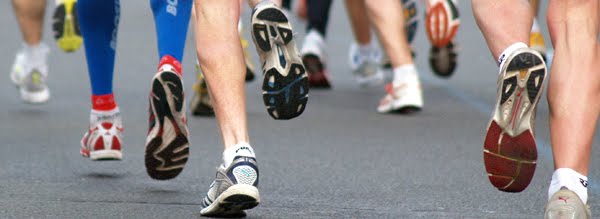Hydration 101
article excerpt by Infinit "The First & and; Last Word in Sports Nutrition"
Do you know how much you should be drinking to stay hydrated
during training or racing?
Infinit explains a trend it has seen over the past couple of years, the issue...
"Athletes have no idea exactly how much they should be drinking in order to stay hydrated. It is a HUGE component of how you will perform. If you lose 2-3% of your body weight in water loss you will lose 5-15% of your watts (power output). For an athlete that weighs 150 pounds, only a few pounds that will make the difference between a solid result and potential disaster.
Salt does not prevent dehydration or cramping. That is the stuff of urban legend. Salt is a transporter of fluids. You need salt, but only enough to move water out of your gut into your system. The movement of water is the key to prevent dehydration and possibly cramping issues. If you are not drinking enough, I don’t care how perfect your formulation is, you might be in for a long day. For most males the target should be around 375 mg of sodium per hour and females around 325 mg. It should be a blend of electrolytes containing sodium, potassium, magnesium and calcium. To reiterate, salt is a transporter. You don’t have to overdue electrolyte intake. You only need enough to move the liquids you are putting into your system.
There are two things that you must have in order to train and race efficiently.
DO A SWEAT RATE TEST! How are you going to know how much you need to be drinking if you don’t have a handle on how much you are sweating? Remember, no product in the world is going to prevent you from dehydrating if you are not drinking enough. Your hydration target will vary somewhat depending on the heat and humidity, but this is a crucial component to race day performance.
• Before your workout empty you bladder, and record your weight
• Record how much you drink during the workout
• After the workout, re-empty your bladder and re-weigh yourself
• Take the weight you lost, ADD the amount you drank, then divide by the number of hours you worked out.
That will give you an hourly hydration target. I would do it a few times to have an average. Your hydration target will need to be adjusted somewhat for heat and humidity. But this is key information for performance.
Calorie and electrolyte intake (in a form that is isotonic). Most athletes perform better by not overdoing calories and salt. Rule of thumb is 2 calories per pound of lean body weight. Obviously some people need more and some people need less. Long distance racers typically need more calories per hour than sprint racers. But these are solid starting points based on working with thousands of athletes.
So there it is. With those these small pieces of information you can have a great race.
• Know how many calories per hour you need
• Know how much you need to be drinking per hour
• Put your nutrition in a form that is isotonic
It does not have to be complicated. Remember simple and repeatable. Follow those simple steps and you will perform the way you want with no nutritional issues."
See this full article and many other great nutrition tips and training articles at Infinit Loop
Summer heat is here... Time for Hydration 101
Subscribe to:
Post Comments (Atom)


Awesome post. Thanks for posting this useful tip.
ReplyDelete